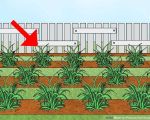Benefits of Composting for Lawns
As I dive deeper into lawn care, I realized that one of the most sustainable practices I could adopt to boost the health of my garden was composting. If you're a lawn enthusiast like me, you probably want your lawn to stay lush and green, while also being environmentally responsible. In this article, I'll explain the numerous benefits of composting for lawns and why it's one of the easiest ways to nurture your garden while minimizing your environmental impact.
1. Composting Enhances Soil Structure
One of the most remarkable benefits of composting is how it improves the structure of the soil. When you add compost to your lawn, it acts as a natural conditioner, improving the soil’s ability to hold water and air. This allows the grass roots to grow deeper and healthier, which in turn promotes a stronger, more resilient lawn. I’ve noticed that my lawn holds moisture much better now, and I don’t need to water as frequently, which saves time and water. Compost also improves drainage in heavy soils, preventing them from becoming compacted and hard.
2. Reduces the Need for Chemical Fertilizers
Another significant advantage is the reduction in the need for chemical fertilizers. Compost is a rich source of essential nutrients like nitrogen, phosphorus, and potassium, which are all key to a healthy lawn. By using compost as a natural fertilizer, you can nourish your lawn without introducing harmful chemicals that can harm the environment and local wildlife. When I first switched to using compost, I found that my lawn grew just as vigorously without the need for commercial fertilizers, and I felt much better about my environmental impact.
3. Promotes Beneficial Microorganisms
Composting not only benefits the visible aspects of your lawn but also promotes a healthier microbial ecosystem. Compost is teeming with beneficial bacteria, fungi, and other microorganisms that break down organic matter in the soil, creating a thriving ecosystem. These microorganisms help with nutrient cycling and organic matter decomposition, creating a fertile environment for the grass to grow. Over time, you’ll notice fewer pests and diseases on your lawn, as the healthy microbes outcompete harmful ones. I’ve found that my lawn looks healthier and experiences fewer issues with pests after adopting composting.
4. Helps Control Soil Erosion
Another benefit I’ve personally experienced is compost's ability to reduce soil erosion. When you add compost to your lawn, it helps bind the soil together and reduces the chances of erosion caused by heavy rainfall or wind. This is especially important for areas of my yard that are sloped, where water runoff could wash away the topsoil. By incorporating compost into the soil, I’ve been able to reduce erosion and maintain a more stable lawn throughout the year.
5. Composting Improves Lawn Resistance to Drought
As someone who lives in an area prone to occasional droughts, I’ve found composting to be an essential tool in helping my lawn withstand periods of dryness. The organic matter in compost helps retain moisture, keeping the soil damp and reducing the need for excessive watering. Over time, this helps your lawn become more drought-resistant, as the roots grow deeper and can access water more effectively. Since I started composting, I’ve noticed my lawn stays greener and healthier for longer periods, even when water restrictions are in place.
6. Composting Reduces Waste
One of the reasons I love composting is that it allows me to reduce waste. Instead of sending kitchen scraps and yard waste to the landfill, I can recycle them back into my lawn care routine. This not only helps reduce the environmental impact of waste but also provides me with a steady supply of nutrient-rich compost. I’ve made it a habit to compost food scraps, grass clippings, and leaves, and I find that my lawn responds well to the organic matter added back into the soil.
7. Cost-Effective Lawn Care
Not only is composting great for the environment, but it's also incredibly cost-effective. Instead of buying expensive fertilizers and soil conditioners, I can create my own compost at home using kitchen scraps, yard trimmings, and other organic materials. Over time, this saves me a considerable amount of money. Plus, homemade compost is free from the added chemicals and preservatives often found in store-bought products. If you're looking for a way to care for your lawn on a budget, composting is definitely the way to go.
8. Composting Improves Lawn Aesthetics
Finally, I’ve noticed that the overall appearance of my lawn has improved since I started composting. The lush green grass, healthy soil, and vibrant plants all contribute to a more beautiful outdoor space. When you have healthy soil, your lawn can better resist weeds, pests, and diseases, which leads to a more aesthetically pleasing yard. Plus, the rich, dark color of compost gives the lawn a nice boost, making it look fuller and more vibrant. It’s amazing how much composting can transform your outdoor space.
Composting is undoubtedly one of the most beneficial practices you can adopt to improve your lawn. Whether you're aiming for a healthier, more vibrant lawn, reducing your environmental footprint, or saving money, composting is a fantastic solution. If you're looking to get started, you don’t need to make it complicated. Simple steps like using kitchen scraps, yard clippings, and ensuring proper composting conditions will help your lawn thrive.








